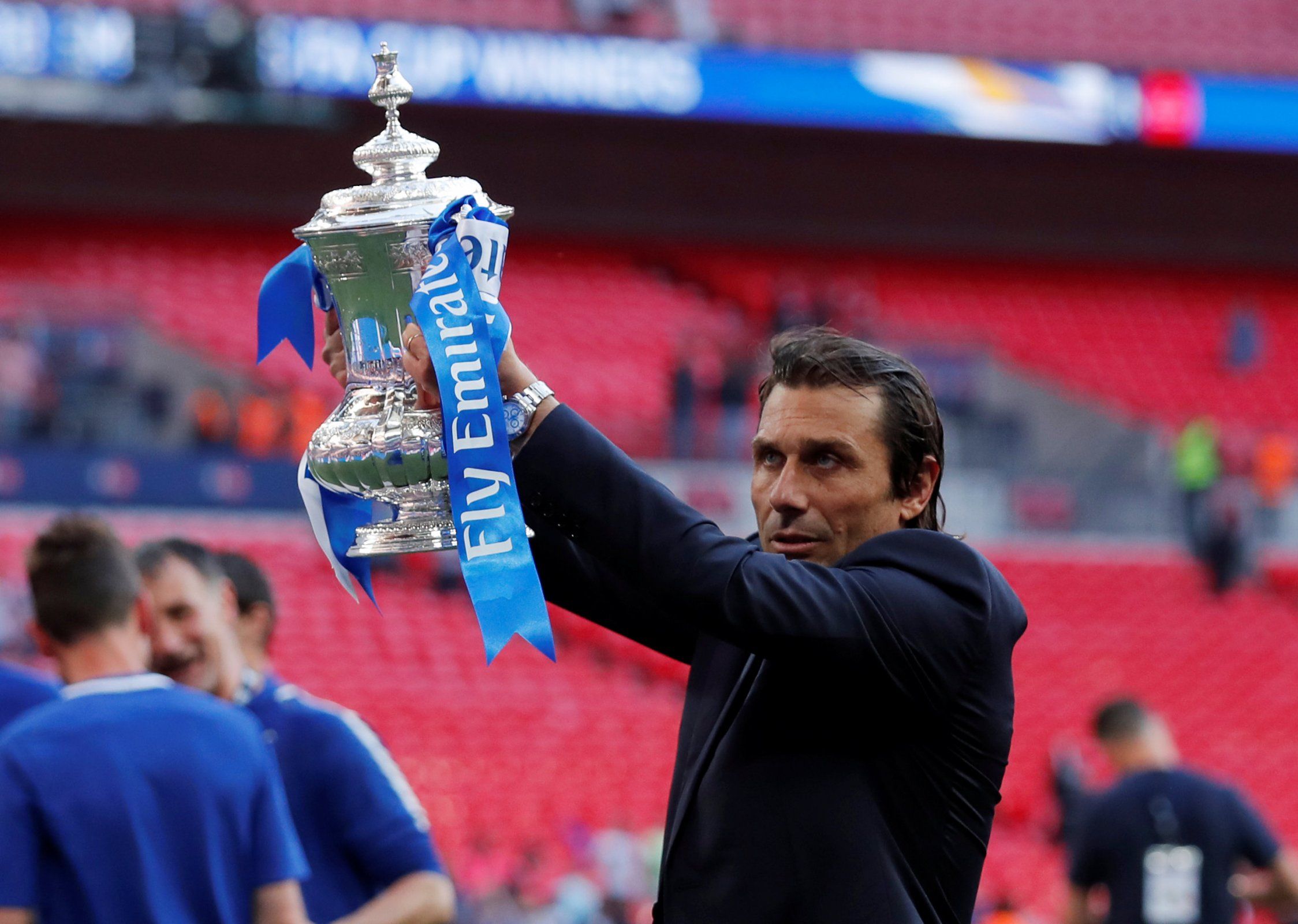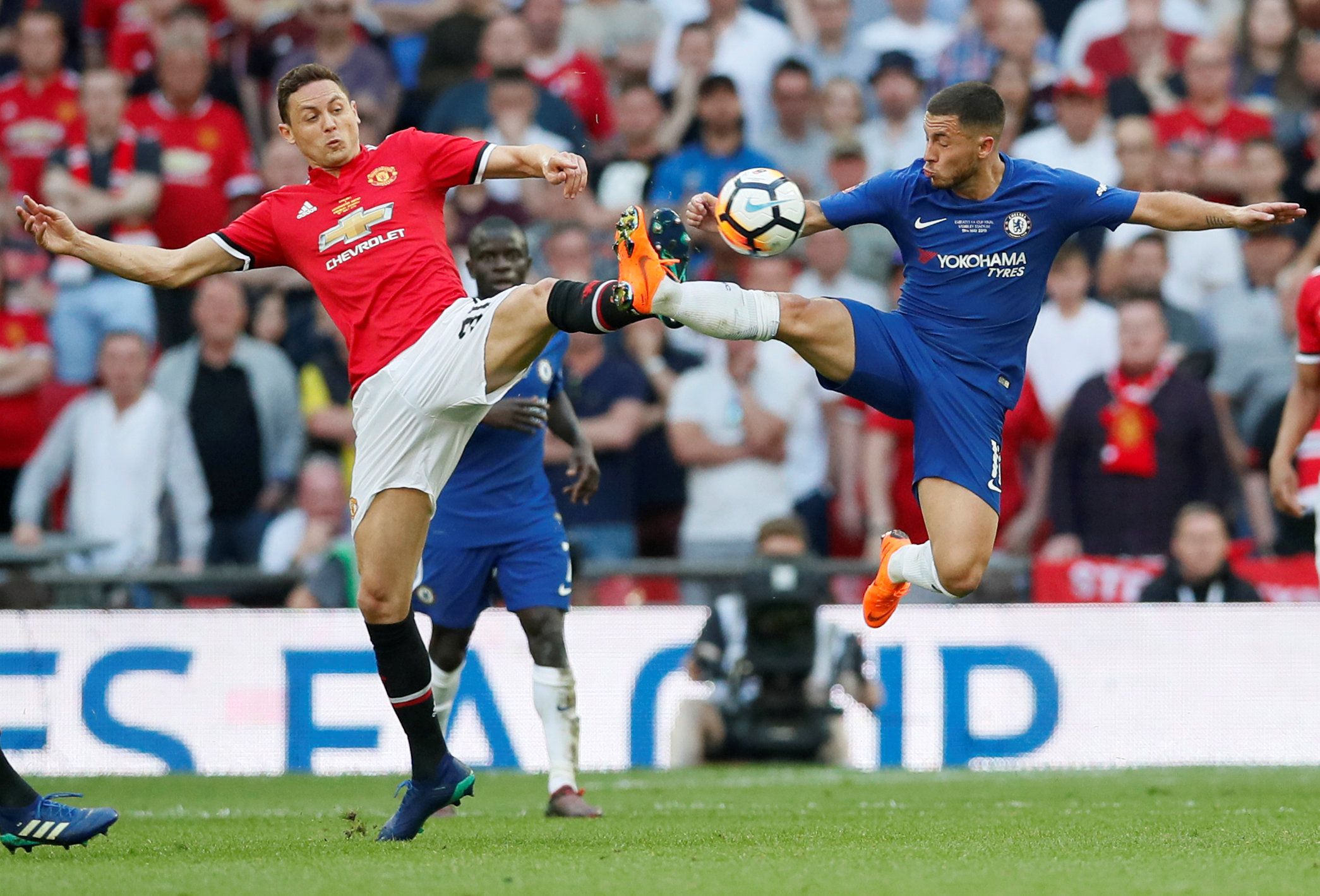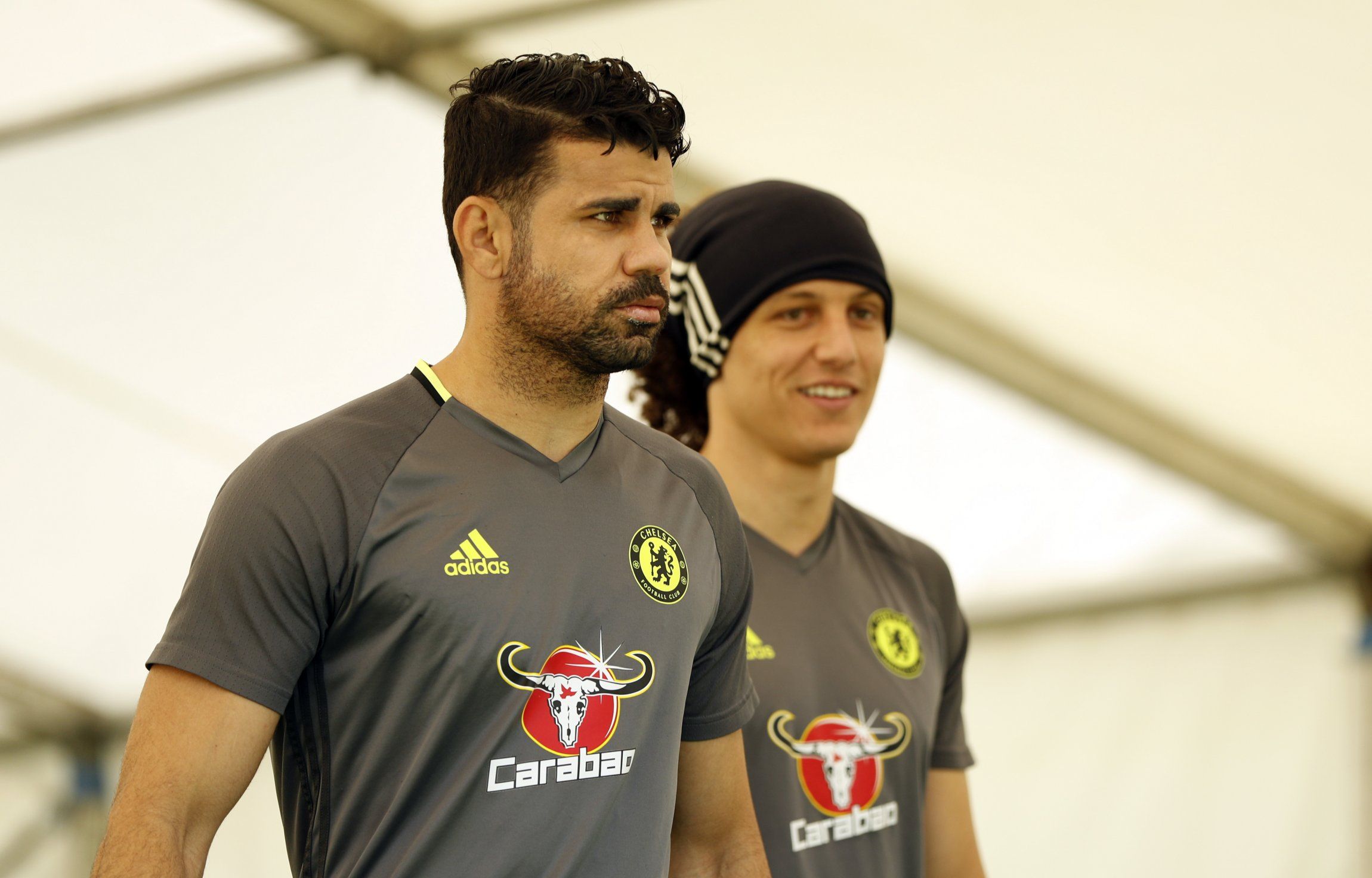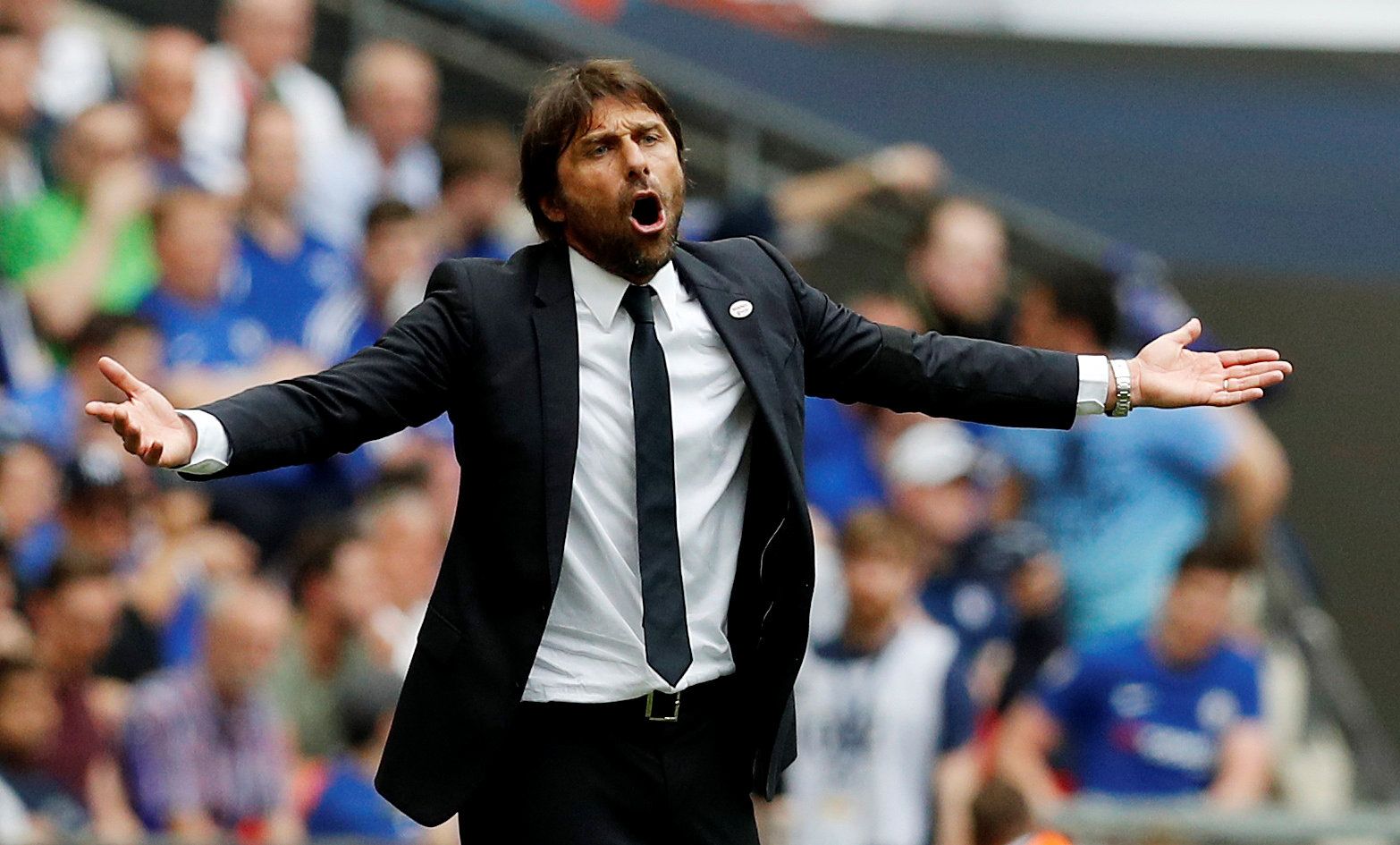Two trophies in two seasons is no simple challenge during the uber-competitive era of big six dominance, so history will tell us Antonio Conte was something close to a resounding success at Chelsea.
His departure, therefore, is yet another that has us questioning what really goes on in the corridors of Stamford Bridge; how influential is player power, when exactly do Chelsea’s board make all these cut-throat decisions and why does it seem that no manager can keep all parties happy long enough to survive more than a few years in west London, even when they’re bringing in silverware? With Roman Abramovich not even allowed to legally work in the UK at the moment, marking perhaps the most turbulent era of his tutelage, those questions now seem more significant than ever.
There’s something repeatedly implosive about Chelsea, which their last two title defences, ending with varying degrees of catastrophe in tenth and fifth place respectively, directly allude to. Conte will be seen as another Chelsea manager who wasn’t properly backed by his paymasters, who became unfairly embroiled in boardroom politics, who could have brought stable success to the west London club if only he’d been given the time, faith and finance to do so.
There’s certainly no doubting Conte’s talent, and he likely joins a peculiar club of Blues managers who have been sacked shortly after winning the FA Cup before enjoying huge success elsewhere. Jose Mourinho and Carlo Ancelotti, two of the greatest managers of their era, neatly fall into that bracket and there are obvious comparisons to draw with the latter. Ancelotti won two trophies in his two years at Stamford Bridge and was hugely popular with the fans; Conte leaves with the same record and will be remembered fondly by the majority of supporters as well.
Whereas Abramovich will always have regrets over how hastily Ancelotti was moved on though, not least because he’s gone on to win a Champions League title and domestic honours in France, Spain and Germany, and the manner in which Mourinho's first spell ended, there will be less sleepless nights over Conte’s departure.
In truth, the 2018 FA Cup glosses over the fractious atmosphere in west London at the end of last season, an abysmal title defence and a failure to qualify for the Champions League, and while Conte may point an accusative finger at those above him, many causes were so obviously self-inflicted that most boards of most major clubs would have doubts over keeping the former Juventus on for another term - trophies or not.
That’s not to say Chelsea’s board are completely blameless - in fact, quite the opposite. For the second time in three years, they’ve followed up a Premier League title win and Champions League qualification with an underwhelming summer transfer window, one that didn’t actually leave the starting XI in a stronger position and only really made superficial improvements to the fringes of the squad.
It’s clear the breakdown in relationship between Conte and the board centred around his minimal influence on transfers, a breakdown that proved irreparable, and he’ll feel that too much of his time was spent battling colleagues and superiors in back rooms rather than Chelsea’s key rivals on the pitch.
And yet, there are few managers in world football - if any - who get exactly what they want all the time. Every manager must work to a budget and in this modern era of overseeing Directors of Football and Chief Executives, most are forced to work with players they wouldn’t have signed and part with players they would have rather kept. It’s the painful reality of the current game that every team thinks like a business as much as they do a football club, and sometimes that means difficult decisions for the sake of financial over footballing gain.
Perhaps Chelsea’s case is a particularly extreme one, because they so obviously have the resources to give their managers pretty much what they want, and because they can hire a calibre of manager who won’t be used to having squad recruitment largely dictated to them. But it shouldn’t be forgotten how poorly Conte reacted to the situation, and how public he made his dissatisfaction.
Throughout 2017/18 alone, he publicly complained about Nemanja Matic’s move to Manchester United, questioned the ability of January signing Ross Barkley and club-record acquisition Alvaro Morata, and told the press on more than one occasion he’s “rarely been given the players [he] asks for.”
Team selections have been telling too; £35million arrival Danny Drinkwater and even £22.5million wing-back Davide Zappacosta, who is said be a Conte signing, made just 17 Premier League starts last term in what has often appeared a statement of disapproval over the club’s transfer dealings. Tiemoue Bakayoko, meanwhile, probably Chelsea’s most disappointing signing of last season, has featured in all but nine of the Blues’ top flight fixtures, despite clearly struggling to cope with the pressures of his first season in the Premier League.
That’s perhaps the biggest disappointment with Conte - how he seemed to make everything a power struggle. Almost every press conference contained digs at his employers or hushed answers insinuating a desire to tell so much more about them, and many of his team selections appeared to be about far more than the opposition Chelsea were facing. At times it even seemed Conte actively fielded weakened teams and overused tired players to prove his point about transfers - how many major clubs in Europe would accept that kind of behaviour from their manager, one that essentially costs the club points or cup progress for the sake of personal justification?
Away from transfers too, Conte developed a worrying knack for alienating some of his most important players. The first example was Diego Costa last summer; while the Italian may have sound reasons for wanting the explosive, uncontrollable Spaniard out of his first team squad, the manner it was handled - telling Costa by text that he wouldn’t be part of his plans for 2017/18 - left a sour taste and cost Chelsea in both wages and transfer fees.
David Luiz, likewise, was one of the key players in Chelsea’s title win and remains one of the biggest personalities in the dressing room, but has been completely isolated since falling out with Conte during a Champions League Group Stage clash. The latest to join the anti-Conte camp is Willian, who now looks set to leave the club.
Willian feels like a particularly important example too. He’s kind of player who needs to be kept happy because he's not guaranteed to start, but Conte appeared to only increasingly anger the attacking midfielder the longer he was at the club. It seems Conte offered Willian little assurance over his importance to the team, and little comfort when not getting in it despite some strong performances.
Isolated, they may seem like incidents that are largely inevitable at every football club. Not every player in every squad will get on with the manager and especially at a club of Chelsea’s size and wealth, there will always be big egos that find themselves pushed to the wayside for the sake of the team. But the real question is what impact these incidents, murmurings and confrontations had on Chelsea’s season, and whether they could have been handed in a much more diplomatic, healthier way.
Would Chelsea’s chances of qualifying for the Champions League have improved with Luiz’s quality and experience at the heart of defence? With Willian fully on board? With Barkley, Drinkwater and Zappacosta feeling they had something to contribute rather than being unwelcome party guests? Without the general feeling of Conte’s dissatisfaction towards the makeup of his squad? Likewise, w ould Chelsea’s chances of qualifying for the Champions League have improved without Conte suggesting the team had been weakened by the sale of Matic? Without the whole gloomy cloud of manager versus board, and the volatile uncertainty that situation has created? The final five-point gap between Chelsea and Liverpool was considerable, but not one that would have been insurmountable.
Of course, whether Chelsea could have finished above this season’s Champions League finalists remains pure conjecture, but the Blues’ worst period of the campaign does provide evidence highlighting Conte’s negative impact. From the turn of 2018 onwards, when Conte really began to ramp up his public disappointment in the club’s transfer dealings, Chelsea’s form spectacularly tanked - losing seven and winning just six of their next 20 games. During the first half of the season, when Conte appeared far more content with the decisions of those above him, Chelsea won 21 of 30 games. A drastic difference, influenced by the pejorative tone Conte set.
[ad_pod ]
Understandably, there will be a strong section of Chelsea supporters disappointed to see another top-class manager given only a few seasons at the club and not allowed the full power of the west London outfit’s purse to truly imprint his image onto the team. Conte has proved already what a talented manager he is, and Chelsea probably represent his greatest achievement considering the 10th-place mess he inherited from Mourinho.
His legacy for the rest of the Premier League, likewise, is equally impressive - proof that teams can win the title while playing three at the back. It seems quite incredible now considering 3-4-3’s huge popularity that no manager had done it before.
But Chelsea’s model is as idiosyncratic as it is controversial, and as much as the model itself Conte’s unwillingness to accept it has resulted in his departure. While he’s brought trophies to Chelsea, he’s also overseen their second-worst title defence and perhaps most disappointingly of all, acted without dignity, grace and discretion.
He made his second season all about the power struggle, and while Chelsea have always been at their rude best with a restless fighter at the helm, Conte seemed to make his fights internal rather than on the pitch. He may be another Chelsea manager leaving before his time truly seems up, but from the club’s perspective it’s for all the right reasons.
[brid playlist="4766" player="12034" title="World Cup 2018"]





